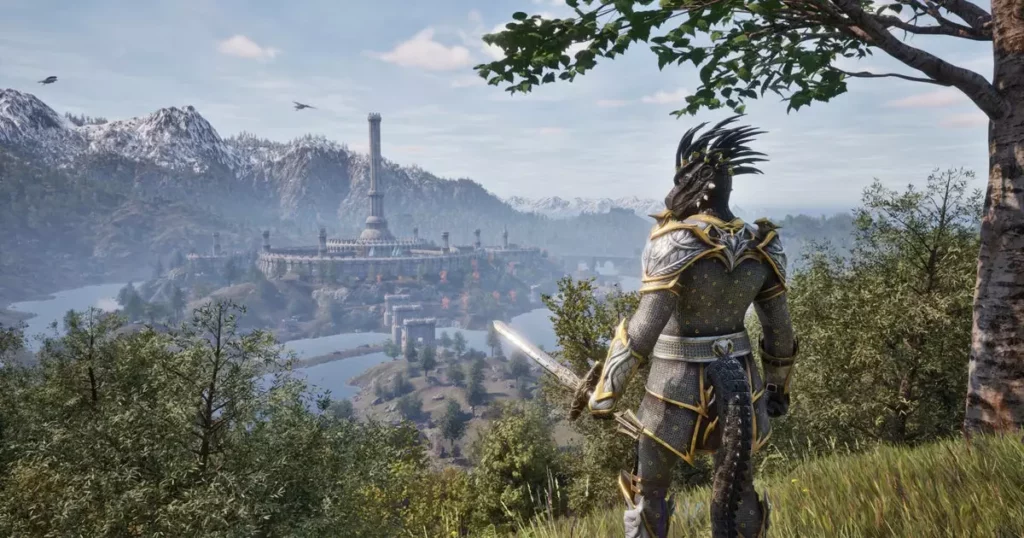In the sprawling cosmos of video gaming, few franchises command as much reverence as The Elder Scrolls. The recent release of The Elder Scrolls IV: Oblivion Remastered sparked an unexpected conflagration among gigabytes of mods, each one breathed into life by an enthusiastic modding community. While Bethesda’s failure to provide official mod support raises eyebrows, the undeniable passion and ingenuity of modders know no bounds. A vibrant tapestry of creativity has taken shape, as creators infuse their love for anime into this intricate fantasy world. This cultural cross-pollination—where fandom meets innovation—has transformed the modding scene into a fascinating commentary on what games can become when players reclaim ownership.
Nostalgia Meets Innovation: Old Mods in New Worlds
Perhaps the most exciting aspect of this resurgence is the unexpected compatibility of older mods with the remastered game. Many nostalgic designs, crafted years ago, have found new life in this upgraded realm. Case in point: a 2008 mod that introduced high-level armor within a prison cell—a rather mundane setting. Yet, when revived, this mod not only conjured fond memories but also functioned impeccably, revealing the potential for modders to resurrect long-forgotten relics while giving them a modern twist. However, the manual adjustments required to make these mods work expose a fundamental dilemma—if modders are expected to adapt old content to new mechanics, does this not indicate a severed connection between developers and their audience?
The Battle of Aesthetics vs. Mechanics
Bethesda’s foray into Unreal’s engine offers promises of enhanced graphics and advanced gameplay mechanics. However, while the lustrous visuals dazzle the eye, the essential question lingers: Does aesthetic beauty eclipse traditional gameplay challenges? Players are greeted by modifications that drastically alter gameplay dynamics, including the controversial removal of carry weight restrictions. This alteration undoubtedly appeals to many, but it raises philosophical inquiries about what defines an Elder Scrolls adventure. Shouldn’t the threat of being over-encumbered enrich the adventuring experience? This dilemma underscores a tension between convenience and the satisfaction derived from overcoming hardships—a tension that has historically defined role-playing games.
A Transformed Game: Enhancements and Adjustments
The remastered Oblivion isn’t merely a visual upgrade positioned on the shelf; it introduces substantial gameplay modifications. The refined user interface and enhanced character movement mechanics cultivate a more immersive experience, yet they invite speculation about the traditional elements fans hold dear. Notably, alterations to the leveling system may appeal to those who found the earlier iterations overly frustrating, yet there exists a lingering curiosity as to whether nostalgia will awaken a yearning for the older, more chaotic scaling those masochistic players so cherished. Will we eventually witness a new wave of mods crafting that old, brutally challenging experience back into the game?
The Creative Future: Challenges and Possibilities
Navigating the intricate landscape of these modding opportunities is far from straightforward. With a plethora of obstacles ahead, modders must demonstrate technical dexterity to meld old designs with new realities. However, within these restrictions lies fertile ground for creativity; it is there that modders craft not only nostalgia-laden experiences but also avenues for experimenting with alternative narratives. Imagine iconic anime figures converging on the stunning landscapes of Cyrodiil, introducing diverse narratives, mechanics, and character arcs. The confluence of anime culture with elder fandom will likely redefine the parameters of how stories can be told within this beloved universe.
The Heartbeat of Gaming Culture
Ultimately, this resurgence within the modding community around Oblivion Remastered crystallizes a vital aspect of contemporary gaming: player-driven experiences. Each mod serves not merely as an alteration in gameplay, but as a reflection of the shared interests and innovations of a dedicated community. As these creators meticulously hone their skills, the modding scene encapsulates the very essence of gaming culture—an evolving celebration of what passion, creativity, and digital craftsmanship can birth from beloved narratives. The flame of modding illuminates a deeper bond between developer and player—a reminder that the community underpinning this franchise is as rich and dynamic as the worlds they explore.









Leave a Reply